Idea by
Kollektiv Raumstation
Call for ideas 2021
Progressive Neighbourhood Laboratory
Progressive Neighbourhood Laboratory
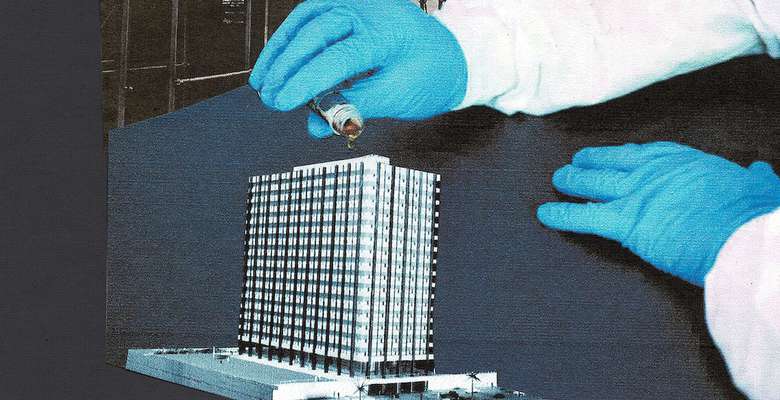
- Systemic changes
How can we envision neighbourhood - beyond romanticising and backwards-looking concepts that dominate current discourses? The Progressive Neighbourhood Lab considers neighbourhood as a crucial part of our cities’ societies and seeks to create premises and proposals as a basis for planning, building, and supporting progressive neighbourhood.
Starting point was the exhibition „Progessive Neighbourhood?” (MAGAZIN, Vienna 2020). Drawing on artistic research in Vienna, Berlin and Zurich, we presented findings that focus on conflict not as a problem, but as fundamental for democratic neighbourhood.
We want to continue the discussions started with the exhibition: For 2021, the Lab is planning more artistic research and a podcast about historic neigbourhood concepts in Vienna’s communal housing estates. Thereby, we focus on gender aspects - and ask the question if and how neighbourhood could or should serve as an infrastructure of care.
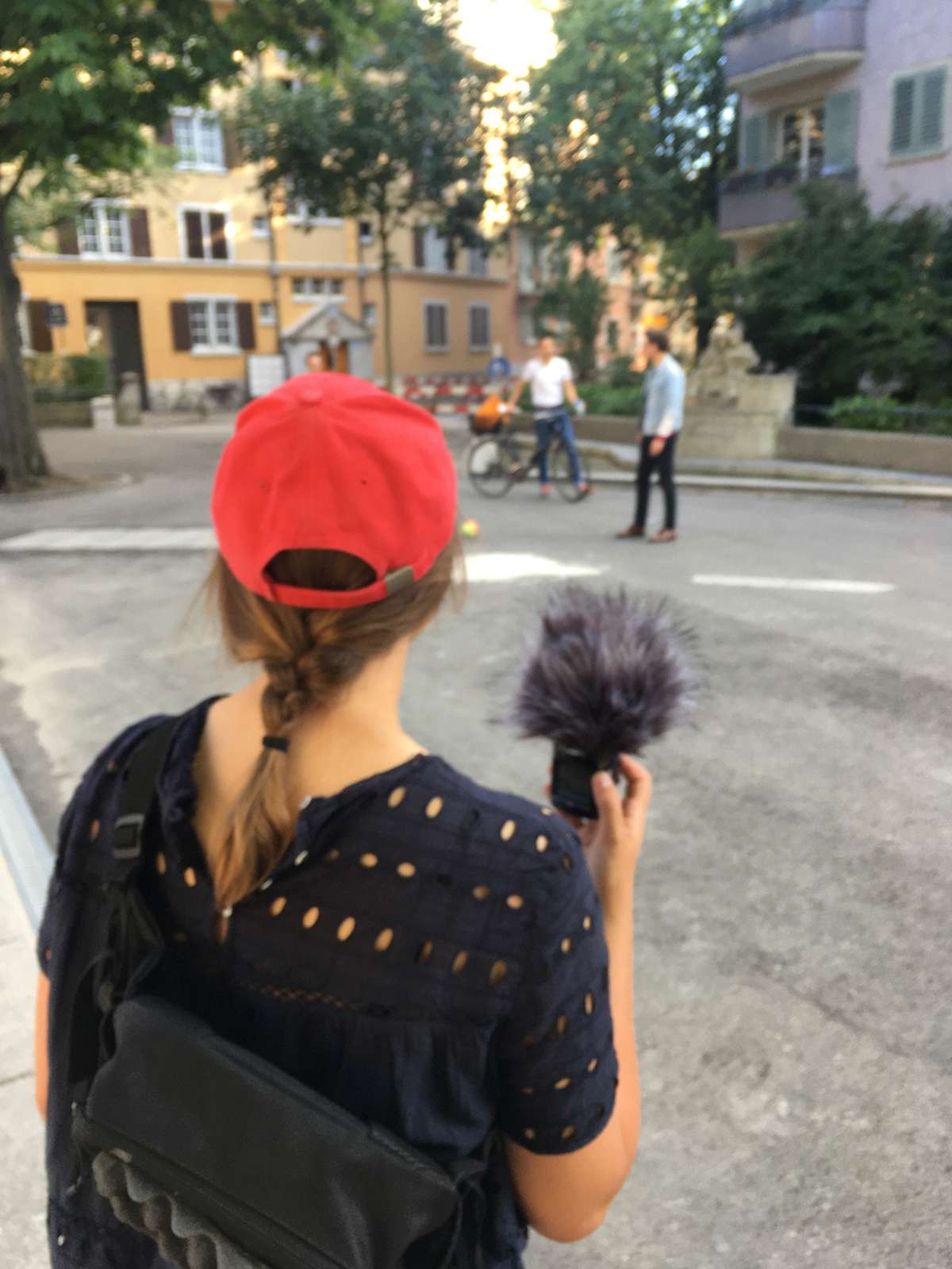
As an activist collective that repeatedly acts implicitly and explicitly with and within neighbourhoods, we have to challenge the outdated and romanticized notions of neighbourhood that we also carry within us.
The exhibition Progressive neighbourhood? in MAGAZIN was the first result of the Laboratory. We put our convictions to the test in an artistic and scientific experiment and asked: What makes a progressive neighbourhood?
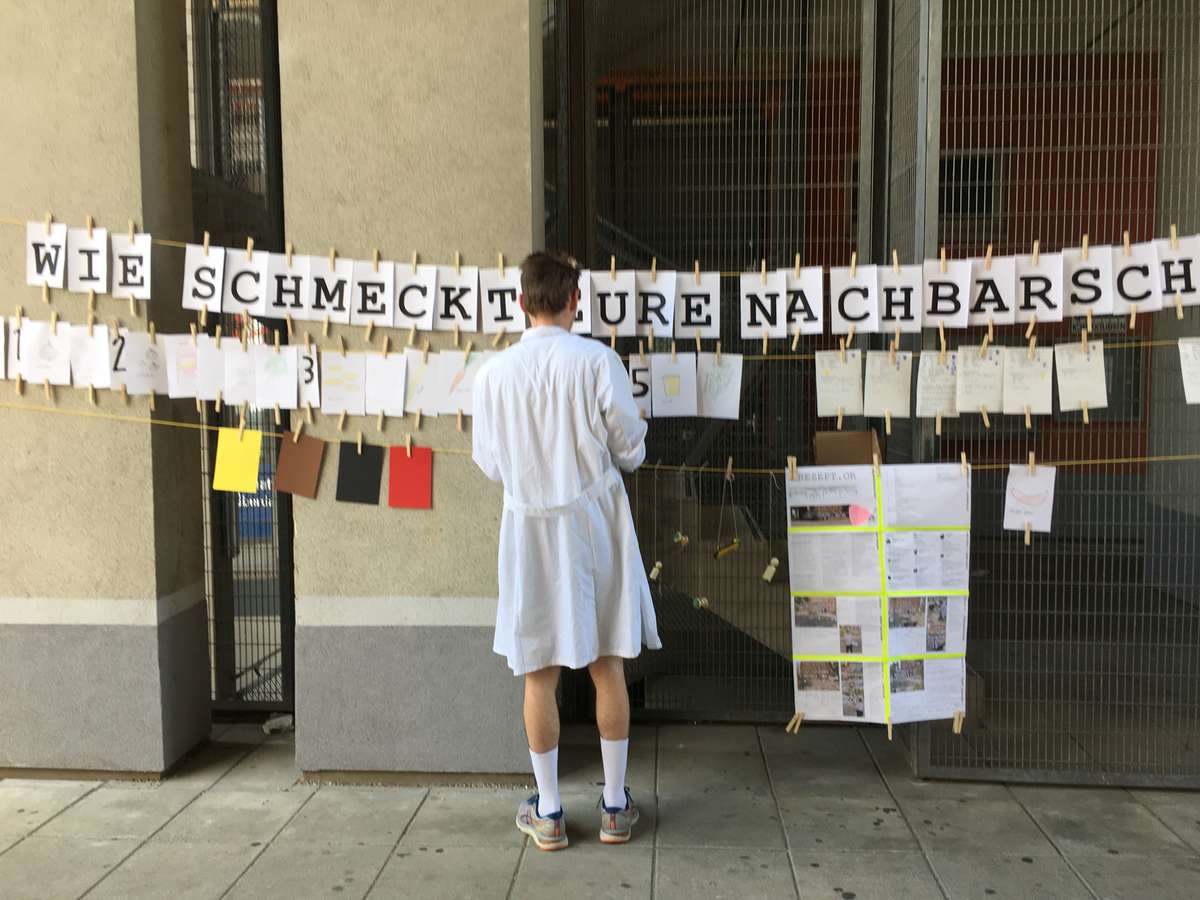
Within the collective, research groups in each city were asked to independently design a "state-of-the-art research apparatus" to measure progressive neighbourhoods and to test our implicit ideas. Each group chose a location in which they suspected certain progressive characteristics of neighbourhood. The research on site – partly distanced, partly participative and performative – confronted our conceptional thoughts with real conditions and new perspectives.
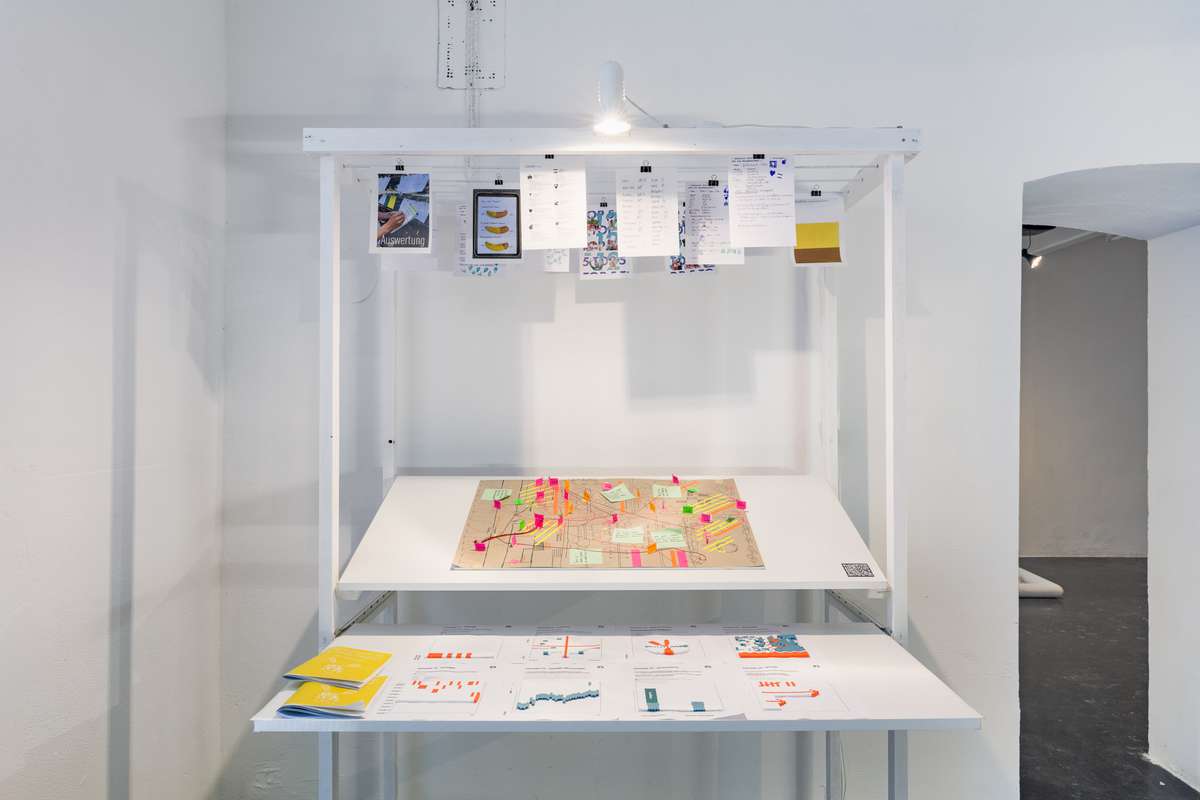
We are trying to free ourselves from the shaky foundation of "neighbourhood as a value in itself” and the picture of the singular neighbourhood. Facing the heterogeneous society we live in, we claim that the actual "foundation" of neighbourhood is precisely the absence of a consensus on what neighbourhood means – and that neighbourhood thus always arise in a state of permanently unresolved conflict.
(c)kunst-dokumentation.com
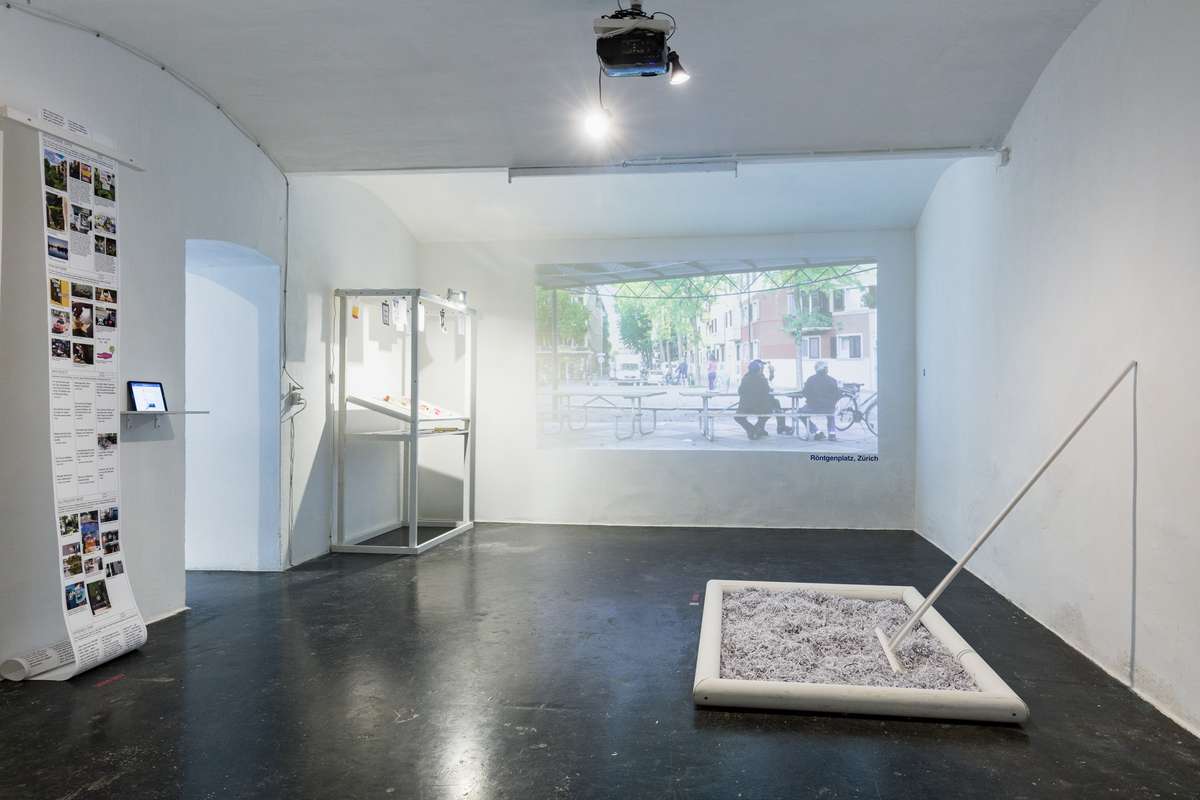
In the exhibition, we presented installations as “extracts” of progressive neighbourhood in a laboratory, e.g. Shared Infrastructure, Space for Negotiation, Co-Presence or Safe(r) Spaces.
(c)kunst-dokumentation.com
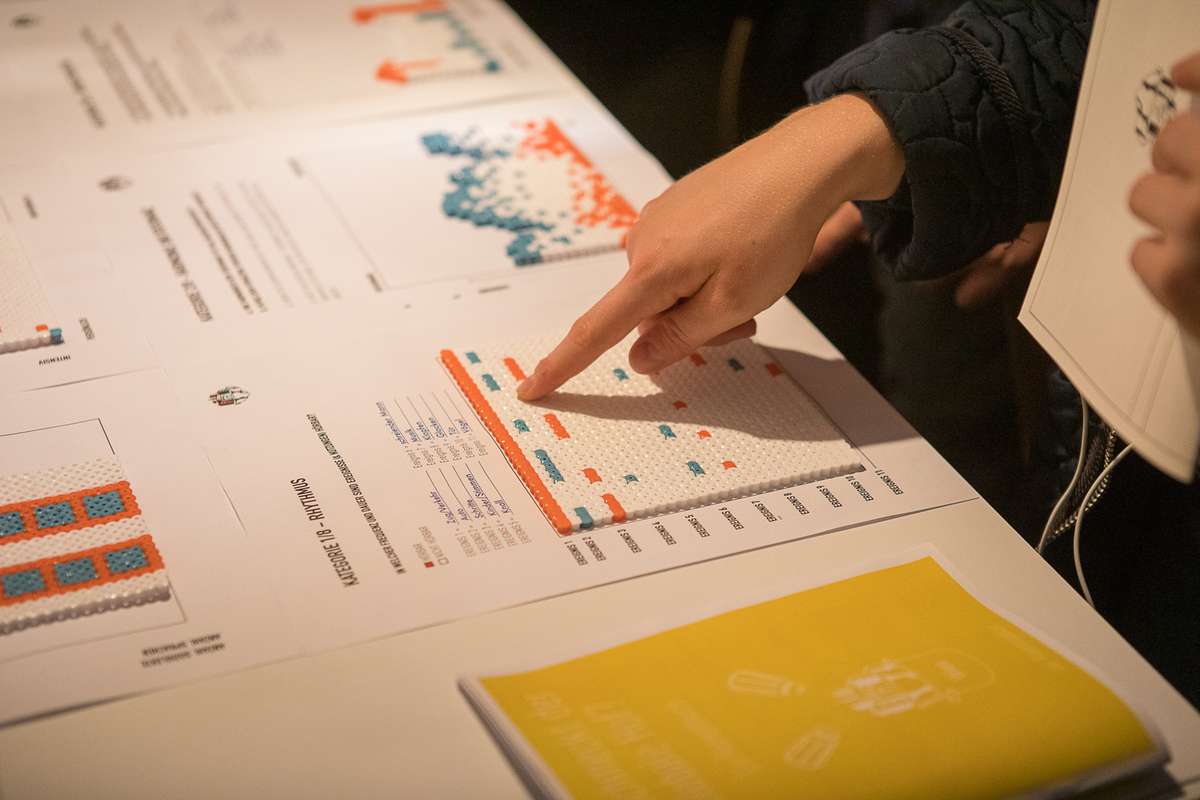
Extending and questioning these assumptions is the starting point of the Neigbourhood Lab: It willl also be a method to find blind spots in our beliefs. For us, “progressive” should be a term into which those (necessarily) overlooked by us can lodge a complaint, one that is constantly being discussed, rejected, reformulated. Therefore, we want to engage in more diverse international contexts, involving other perspectives, different conditions and specific challenges.
(c)Richard Pobaschnig
Progressive Neighbourhood Laboratory
Progressive Neighbourhood Laboratory

- Systemic changes
How can we envision neighbourhood - beyond romanticising and backwards-looking concepts that dominate current discourses? The Progressive Neighbourhood Lab considers neighbourhood as a crucial part of our cities’ societies and seeks to create premises and proposals as a basis for planning, building, and supporting progressive neighbourhood.
Starting point was the exhibition „Progessive Neighbourhood?” (MAGAZIN, Vienna 2020). Drawing on artistic research in Vienna, Berlin and Zurich, we presented findings that focus on conflict not as a problem, but as fundamental for democratic neighbourhood.
We want to continue the discussions started with the exhibition: For 2021, the Lab is planning more artistic research and a podcast about historic neigbourhood concepts in Vienna’s communal housing estates. Thereby, we focus on gender aspects - and ask the question if and how neighbourhood could or should serve as an infrastructure of care.
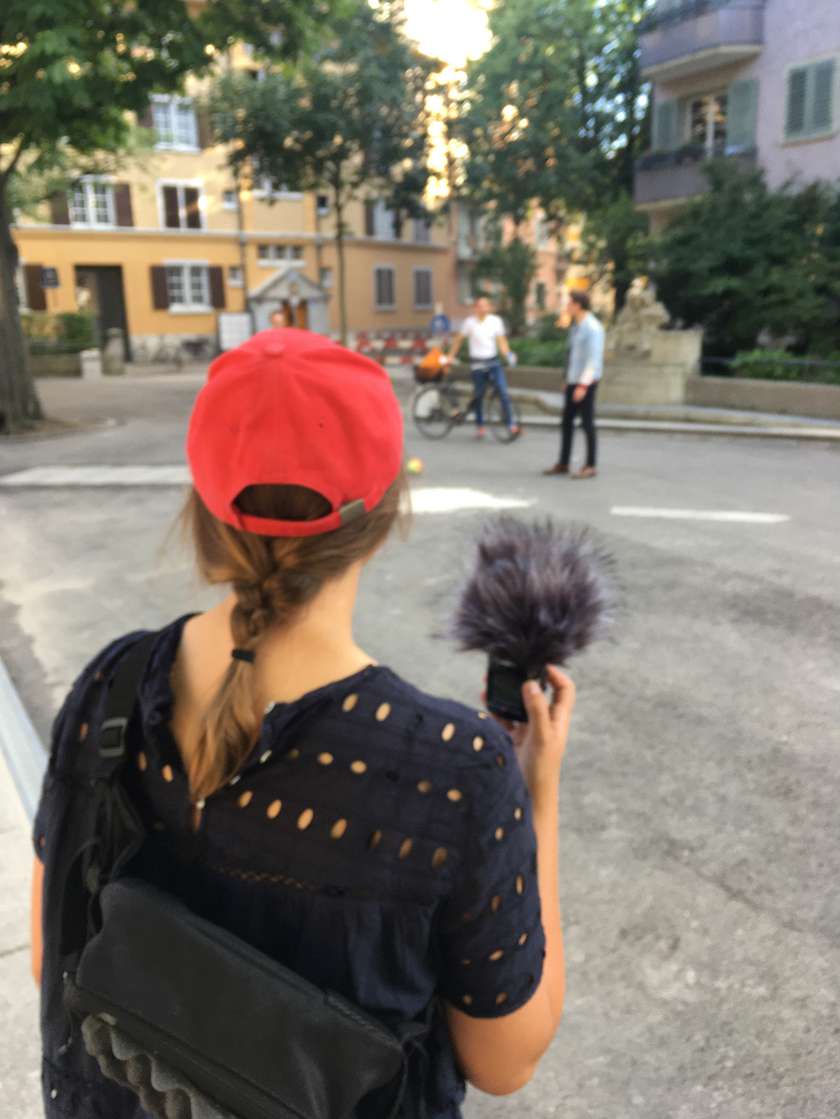
As an activist collective that repeatedly acts implicitly and explicitly with and within neighbourhoods, we have to challenge the outdated and romanticized notions of neighbourhood that we also carry within us.
The exhibition Progressive neighbourhood? in MAGAZIN was the first result of the Laboratory. We put our convictions to the test in an artistic and scientific experiment and asked: What makes a progressive neighbourhood?
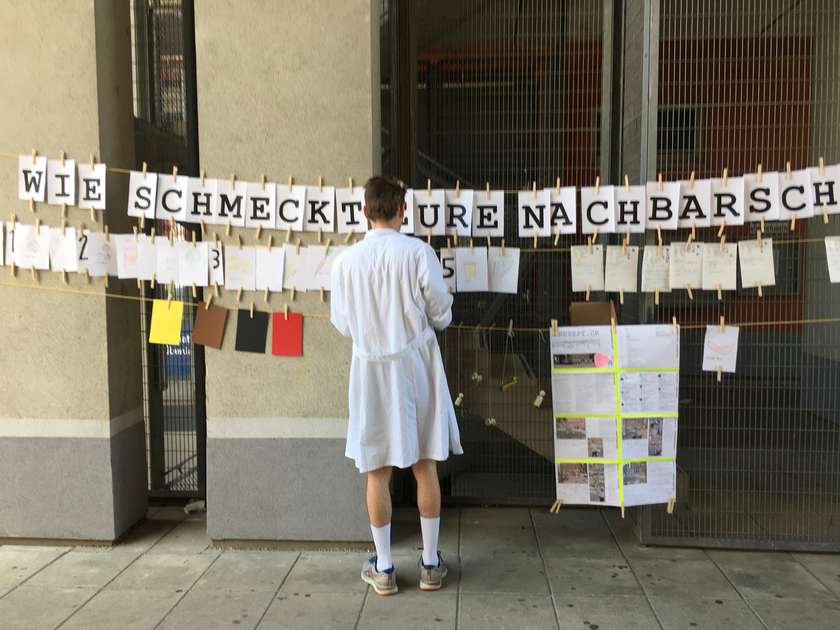
Within the collective, research groups in each city were asked to independently design a "state-of-the-art research apparatus" to measure progressive neighbourhoods and to test our implicit ideas. Each group chose a location in which they suspected certain progressive characteristics of neighbourhood. The research on site – partly distanced, partly participative and performative – confronted our conceptional thoughts with real conditions and new perspectives.
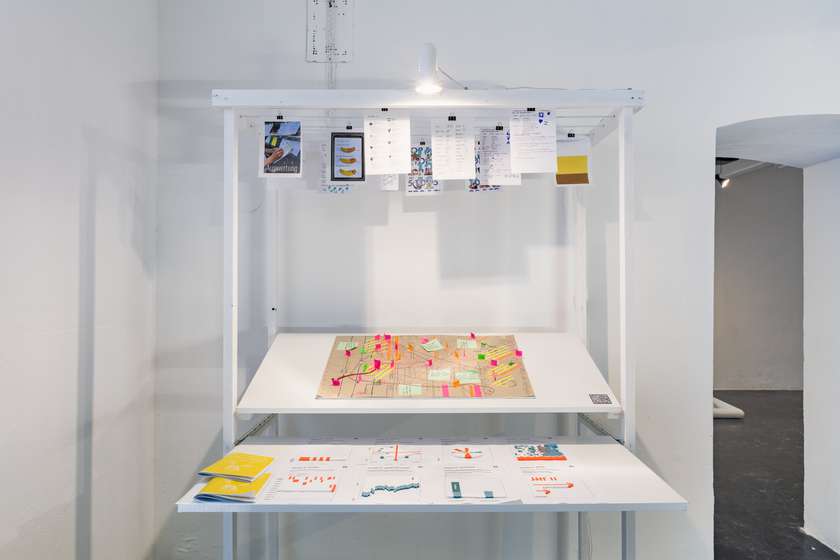
We are trying to free ourselves from the shaky foundation of "neighbourhood as a value in itself” and the picture of the singular neighbourhood. Facing the heterogeneous society we live in, we claim that the actual "foundation" of neighbourhood is precisely the absence of a consensus on what neighbourhood means – and that neighbourhood thus always arise in a state of permanently unresolved conflict.
(c)kunst-dokumentation.com
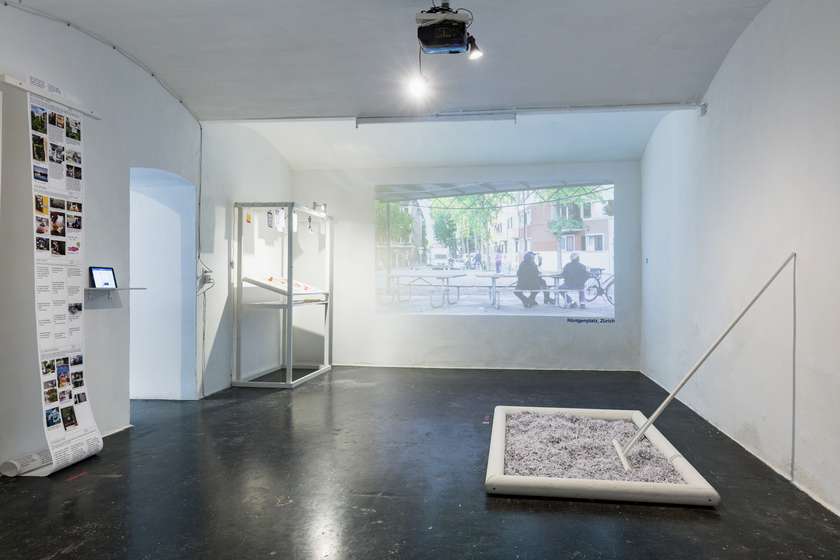
In the exhibition, we presented installations as “extracts” of progressive neighbourhood in a laboratory, e.g. Shared Infrastructure, Space for Negotiation, Co-Presence or Safe(r) Spaces.
(c)kunst-dokumentation.com
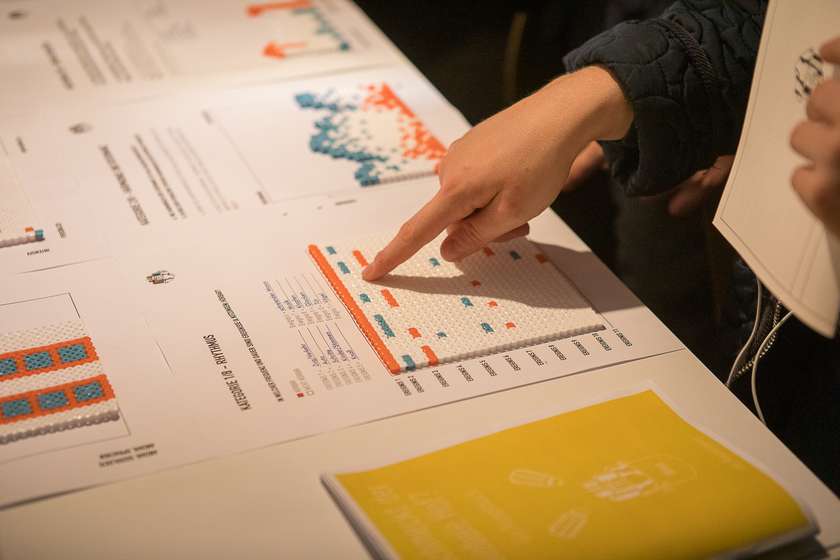
Extending and questioning these assumptions is the starting point of the Neigbourhood Lab: It willl also be a method to find blind spots in our beliefs. For us, “progressive” should be a term into which those (necessarily) overlooked by us can lodge a complaint, one that is constantly being discussed, rejected, reformulated. Therefore, we want to engage in more diverse international contexts, involving other perspectives, different conditions and specific challenges.
(c)Richard Pobaschnig